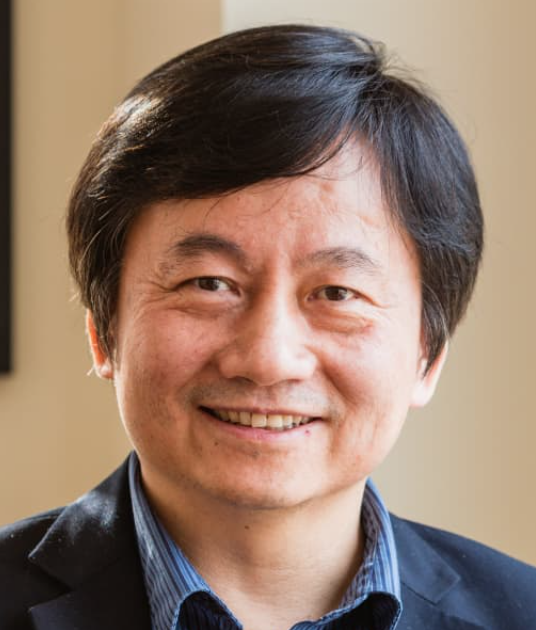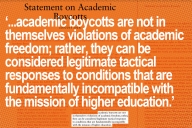You have /5 articles left.
Sign up for a free account or log in.

Haifan Lin
Yale University
Faculty members at Yale University are criticizing the treatment of a colleague who appears to have been targeted by a federal counterespionage program formerly known as the China Initiative.
The government’s allegations against the professor, Haifan Lin, Eugene Higgins Professor of Cell Biology and professor of genetics and dermatology, remain unclear. Yale declined all comment on the case. Yale has said internally that the National Institutes of Health inquired about and expressed doubt as to the veracity of Lin’s external funding disclosures for grants, and that the Justice Department is investigating, but it hasn’t said much more. DOJ, which last month said it was ending the controversial China Initiative to expand its focus beyond just China, hasn’t made any public statement about Lin.
What is clear is that Lin, a Chinese-born U.S. citizen and adjunct dean at ShanghaiTech University, has been suspended from Yale and banned from contacting his students or colleagues since January. Also clear is that he hasn’t been arrested or charged with any crime.
Nearly 100 Yale professors signed a private letter to President Peter Salovey about Lin’s case earlier this month, questioning the apparent lack of due process afforded Lin and describing a sense of fear that anyone with personal or professional links to China could be “cut off” next. The letter also contrasted Yale’s treatment of Lin with the Massachusetts Institute of Technology’s treatment of scholar Gang Chen, whom MIT vigorously defended against claims that he’d misrepresented his own links to China. MIT did suspend Chen, but only after his arrest.
Federal prosecutors accused Chen of wire fraud, failing to file a foreign bank account report and making a false statement in the tax return, then dropped all charges in January. Chen’s case is thought to be a major factor in the Justice Department’s rethinking of the China Initiative.
In a response to the faculty members who signed the Lin letter, Provost Scott Strobel and Nancy Brown, dean of the medical school, wrote that the NIH asked Yale in 2019 about “the sufficiency of reporting of outside support by some faculty members who received NIH grants.” The university responded with information provided by the professors in question, including Lin. The NIH then “questioned whether the university’s response was accurate with respect to the information provided” regarding Lin.
Yale took the position that it was accurate, “and we advocated vigorously on Professor Lin’s behalf,” Strobel and Brown continued. About a year later, after ongoing discussions, the university received word that the DOJ had initiated a criminal investigation, and Yale cooperated by providing materials in response to a subpoena.
Federal investigators asked to speak with Lin in March 2021, Strobel and Brown said, and the university retained an outside lawyer to represent him. Then, in January, the NIH “provided Yale with information that appeared inconsistent with information Professor Lin had provided previously and upon which the university had based its response to the 2019 NIH inquiry. Following a decanal and provostial review, Professor Lin has been placed on paid administrative leave while the university conducts an internal investigation.”
Strobel and Brown continued, “We assure you that Yale has acted assertively to support Professor Lin throughout this matter. The university has advocated relentlessly with government officials and paid for separate counsel. Yale School of Medicine has committed to bridge funding to support Professor Lin’s research program. From the moment Dr. Lin went on leave, the chair of his department pledged to support his students. We appointed an interim director of the Stem Cell Center to ensure continuity. We are working as diligently and as quickly as possible to resolve this matter and to support those most affected.”
Deans and provosts may place a faculty member on administrative leave, usually with pay, “in extraordinary situations such as this one,” they also said. “The actions taken thus far, though difficult, are consistent with Yale’s practices and policies.”
As to whether Yale was treating Lin differently than MIT treated Chen, Strobel and Brown said, “we have provided significant support, but the circumstances at Yale are different from those at MIT. NIH has provided credible information that we must investigate.”
The administrators also acknowledged “the pain, fear, and stress that our Asian and Asian American colleagues have experienced in recent years. We are fully committed to ensuring that Yale supports these members of our community and that they thrive here.”
A day after Strobel and Brown sent their letter, Yale’s department of cell biology and the Yale Stem Cell Center shared a statement of support for Lin on social media, saying Lin is “not only a brilliant scientist and mentor, whose eminence has been recognized by election to the U.S. National Academy of Sciences, but also a leader who we know to be of the utmost integrity. We have complete confidence in him. We are equally confident that the [DOJ] investigation will only reveal that he has been the victim of poorly conceived federal policies.”
The statement also acknowledged Yale’s internal investigation of the matter as “understandable and proper” but called it “deeply disturbing” that Lin had been banned from campus and from communicating with students and co-workers prior to any finding.
“This pre-emptory suspension is on the face of it deeply un-American because it applied a penalty to Haifan before due process could be completed and apparently before affording him the chance to defend himself,” Lin’s colleagues wrote. “The result is an unjustified and devastating interruption to Haifan’s personal and professional life. The Yale administration’s further decision to separate him from contact with his students is totally unwarranted and damaging to utterly innocent members of our community.”
Valerie Horsley, Maxine F. Singer Associate Professor of Molecular, Cellular, and Developmental Biology, chair of the Faculty of Arts and Sciences Senate at Yale, and one of Lin’s mentees, whom he recruited to Yale, said that Lin has always been “very open” about his activities in China, including his adjunct deanship in Shanghai, and mindful of Yale’s policies about outside activity.
Horsley said she was therefore “shocked and concerned” to learn that Lin had been suspended suddenly and that the case continues to cast a pall over the campus.
“We have to report about external funding to the NIH, and we all try our best, but we’re all very busy, and I’m sure a lot of faculty feel like they could make any mistake,” she said of the apparent allegations against Lin. “This seems a little extreme to us, especially in the relation to the China Initiative.”
Regarding Yale’s handling of the case, Horsley said, “the largest concern is the fact that he’s been placed on administrative leave from Yale and it’s unclear that he’s done anything wrong. It seems like if there needs to be an administrative leave that would impact the lab, that they should have some strong evidence and an explanation for why that needs to happen. This is going to impact his trainees and his lab, and it could turn out that everything’s fine. I’m not sure how that’s fair to those people and the science he’s done.”









